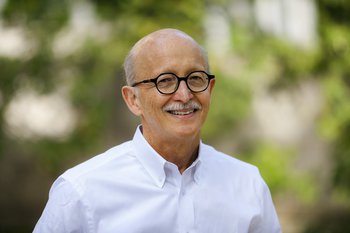

 Princeton University Press
Princeton University Press
Dark Matter Credit: The Development of Peer-To-Peer Lending and Banking in France


Key Metrics
- Philip T Hoffman
- Princeton University Press
- Hardcover
- 9780691182179
- 9.4 X 6.3 X 1.3 inches
- 1.45 pounds
- Business & Economics > Economic History
- English
 Secure Transaction
Secure TransactionBook Description
How a vast network of shadow credit financed European growth long before the advent of banking
Prevailing wisdom dictates that, without banks, countries would be mired in poverty. Yet somehow much of Europe managed to grow rich long before the diffusion of banks. Dark Matter Credit draws on centuries of cleverly collected loan data from France to reveal how credit abounded well before banks opened their doors. This incisive book shows how a vast system of shadow credit enabled nearly a third of French families to borrow in 1740, and by 1840 funded as much mortgage debt as the American banking system of the 1950s.
Dark Matter Credit traces how this extensive private network outcompeted banks and thrived prior to World War I--not just in France but in Britain, Germany, and the United States--until killed off by government intervention after 1918. Overturning common assumptions about banks and economic growth, the book paints a revealing picture of an until-now hidden market of thousands of peer-to-peer loans made possible by a network of brokers who matched lenders with borrowers and certified the borrowers' creditworthiness.
A major work of scholarship, Dark Matter Credit challenges widespread misperceptions about French economic history, such as the notion that banks proliferated slowly, and the idea that financial innovation was hobbled by French law. By documenting how intermediaries in the shadow credit market devised effective financial instruments, this compelling book provides new insights into how countries can develop and thrive today.
Author Bio
Philip Hoffman is interested in combining economic theory and historical evidence to explain long-term changes in politics, society, and the economy—in particular, economic growth and political development. His current research focuses on several areas. He's exploring why the West grew rich before other parts of the world and why it became a dominant military power.
Another area of interest is the evolution of financial institutions and their effect on economic growth. Specifically, he's trying to understand how mortgage markets developed in France and how they were affected by institutional change. Finally, Hoffman is interested in how states develop the capacity to levy taxes and provide public goods.
Hoffman was president of the Economic History Association in 2013–2014 and co-editor of the Journal of Economic History from 2006 to 2010, and he will become the incoming president of the Social Science History Association in 2019. He has been a visiting professor at the Ecole des Hautes Etudes en Sciences Sociales in France, a visiting researcher at the Paris School of Economics (2011), and a visiting professor at the Hong Kong University of Science and Technology (2013).
In addition to numerous articles, he has written six books and edited two.
He has won the Gyorgy Ranki Biennial Prize from the Economic History Association twice, for Priceless Markets: The Political Economy of Credit in Paris, 1660–1870 (2001) and for Growth in a Traditional Society: The French Countryside, 1450–1815 (1997), which was also awarded the Allan Sharlin Memorial Award from the Social Science History Association. In addition to receiving other prizes for his books and articles, he was a John Simon Guggenheim Fellow in 2001.
- Education
- A.B., Harvard College, 1969;
- M.A., University of California, 1971;
- Ph.D., Yale University, 1979.
- Lecturer in History, Caltech, 1980-81; Instructor, 1981-82; Assistant Professor, 1982-84;
- Associate Professor of History and Social Science, 1984-95;
- Professor, 1995-2003;
- Richard and Barbara Rosenberg Professor of History and Social Science, 2003-08;
- Axline Professor, 2008-. Executive Officer for the Humanities, 1995-2000.
- Research Interests
- Economic History of Europe and the World; Economic Development; Institutional Change
Source: California Institute of Technology Division of The Humanities and Social Sciences
Videos
No Videos
Community reviews
Write a ReviewNo Community reviews